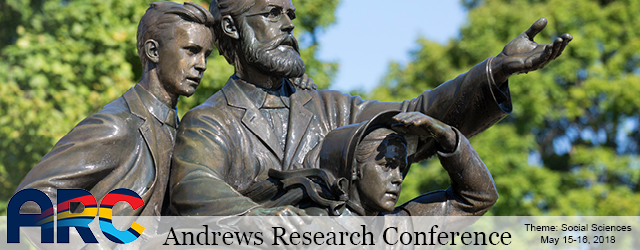Political Sectarianism and Social Services in Lebanon
Presenter Status
Graduate Student, Peace Studies and Sociology
Presentation Type
Oral presentation
Presentation Abstract
This paper views current relationships between social welfare providers and citizens in Lebanon in light of the country’s colonial history and the development of political sectarianism post-independence. The distribution of social services as it is experienced by Lebanese citizens today is in many ways a continuation of state welfare policies as they emerged before, during, and after the French mandate period. Drawing from previous research on Lebanese welfare institutions, I argue that both the mandate period and the post-civil war period witnessed the reification of social and political divisions in Lebanon as they related to the distribution of social services. Whereas the former took place partly as a result of France seeking local intermediaries through whom to disburse social services to the colonized population, which often occurred along sectarian lines, the latter constituted a missed opportunity to correct for sectarianism as it had been codified into law at the level of the governance structure. The effects of these legacies on welfare distribution and access can still be felt in the population today. I argue that moving toward deconfessionalization of the political and welfare distribution systems in Lebanon is needed in order to address inequities in access to social services, inefficiencies in service provision, and poor outcomes on a number of dimensions of human and social development. It is arguably the most sustainable way to correct the disparities in welfare distribution that have been entrenched by colonialism, and left largely unaddressed in the wake of the Lebanese civil war.
Biographical Sketch
Michelle Sawwan (Peace Studies & Sociology) is a Presidential Fellow at the University of Notre Dame. She holds Bachelor's degrees in Arabic Language, Literature and Spanish Language, and an M.A. in Middle Eastern Studies, from the University of Virginia. There she conducted research on how social encounters between members of opposing student organizations on the issue of the Palestinian-Israeli conflict shaped activism within individuals' own partisan groups, and on male social dynamics in Arabic literature on the Lebanese Civil War period. This informed her interests in the impacts of conflict on social and institutional relationships. She is currently researching issues of governance in pluralistic societies, models of governance, and community response, as forms of conflict prevention.
Political Sectarianism and Social Services in Lebanon
This paper views current relationships between social welfare providers and citizens in Lebanon in light of the country’s colonial history and the development of political sectarianism post-independence. The distribution of social services as it is experienced by Lebanese citizens today is in many ways a continuation of state welfare policies as they emerged before, during, and after the French mandate period. Drawing from previous research on Lebanese welfare institutions, I argue that both the mandate period and the post-civil war period witnessed the reification of social and political divisions in Lebanon as they related to the distribution of social services. Whereas the former took place partly as a result of France seeking local intermediaries through whom to disburse social services to the colonized population, which often occurred along sectarian lines, the latter constituted a missed opportunity to correct for sectarianism as it had been codified into law at the level of the governance structure. The effects of these legacies on welfare distribution and access can still be felt in the population today. I argue that moving toward deconfessionalization of the political and welfare distribution systems in Lebanon is needed in order to address inequities in access to social services, inefficiencies in service provision, and poor outcomes on a number of dimensions of human and social development. It is arguably the most sustainable way to correct the disparities in welfare distribution that have been entrenched by colonialism, and left largely unaddressed in the wake of the Lebanese civil war.



